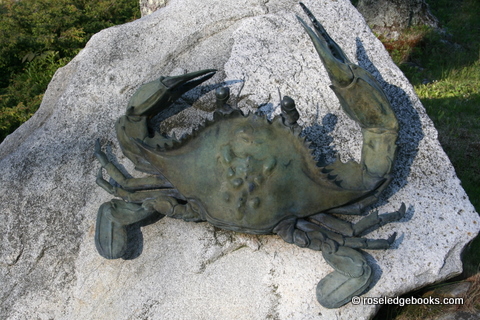Some mornings are especially fine: good coffee, curious new tracks in the snow, and the NYTimes with a “search” story. Today was one such.
First the story: A lost letter from Rene Descartes was found (NYTimes 2/25/10). A Descartes scholar in Utrecht (Holland) found it “during a late-night session browsing the Internet [in which] he noticed a reference to Descartes in the description of the manuscript collection at Haverford College in Pennsylvania.”
Just think about the improbability of such a thing happening. The President of Haverford didn’t know they had it; only one Haverford paper writer, in 1979, had used it; the College received it from the widow of an autograph collector who bought it for the signature, not the content, in 1902; it was just one item in the library’s “special collections,” but the librarians had included it in the online catalog and described it in enough detail for the Utrechtian (?) to have a pretty good idea of the treasure he had found. What on earth was he searching that he landed at Haverford? This is due diligence of an unusual order. If the search limits the sources found and the sources found at least shape the argument and maybe the conclusions, then is it fair to say that I search, therefore I know? (Okay, I was an undergraduate philosophy major.) Do you have to be a librarian, as I am, to be proud of the catalog?

Figure #78. Can you find this when next you are on foot, in Tenants Harbor, and I hope on your way to or from Roseledge Books?
Another choice detail involves the theft of the letter. Guglielmo Libri stole it and fled to England in 1848 with 30,000 books and manuscripts by Rousseau and other scientific and mathematical giants. The logistics of this theft and transport are staggering. He lived off the proceeds from their sales. This consequential scattering of the treasure makes the searching and finding even more remarkable. I wish it weren’t so, but Count Libri (Can that really be his name?) “served as secretary of the Committee for the General Catalog of Manuscripts in French Public Libraries.” Oh the shame! And the irony. He may have known what manuscripts to steal from their catalog entries, but a later catalog entry saw the return of at least one manuscript to its rightful owner.
An aside: Three great search books are Nicholas Clapp’s The Road to Ubar; Roy Hoxham’s The Great Hedge of India, and William Dalrymple’s From the Holy Mountain.
Then the curious new tracks in the backyard snow: could it be a coyote?
Suburbs north and south of the city are reporting ever more sightings, the Star Tribune (2/28/10) notes. This could be part of the reason I’ve seen no more rabbit tracks. Millie thought Max, the maximum cat, was responsible, but Katie, mother of Max, says that based on vet bills, he’s more likely to take on the coyote.
Finally, the good coffee: I drink an Equal Exchange blend developed by Millie after listening to my complaints: 3 parts Midnight Sun mixed with 1 part Body, Mind and Soul (which sounded way too new-age for me). It is wonderful. Dark, but not bitter, with a bit of a kick. I am trying to get the Equal Exchangers to develop it as a Roseledge Books blend. This should be possible as key EE-er’s are longtime Roseledge people, readers, Charlie’s sort-of cousins, and Millie’s son and daughter-in-law. Some days, life is especially fine.
